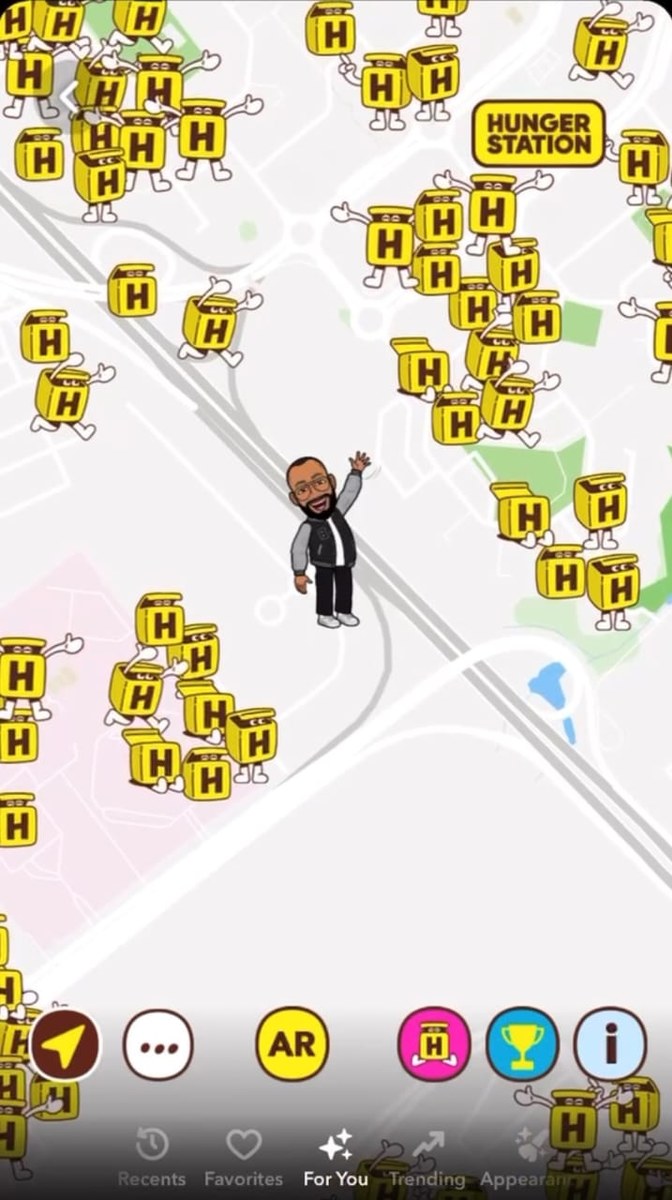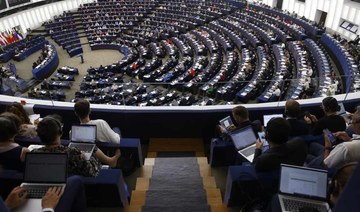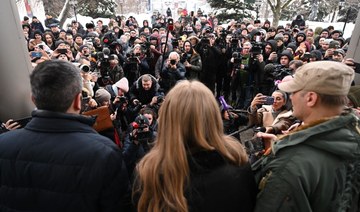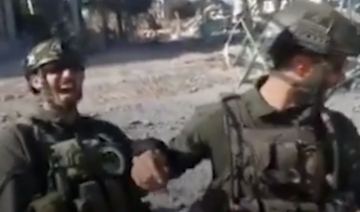AL-MUKALLA: Amnesty International has called on the Iran-backed Houthi militia in Yemen to stop prosecuting imprisoned journalists and cease its harsh assault on the media, the latest in a succession of international condemnations of the militia’s maltreatment of prisoners and suppression of free expression.
The international human rights advocacy organization criticized the Houthis for violently attacking opposition media outlets, arresting and prosecuting journalists, and sentencing outspoken journalists to death or lengthy jail terms.
“Amnesty International calls on the Houthi de facto authorities to immediately and unconditionally release all journalists, political activists, human rights defenders, and others unlawfully imprisoned solely for peacefully exercising their human rights,” the organization said in a statement.
“The Houthis must also quash the death sentences imposed on the four journalists, who are facing execution following a grossly unfair trial, and ensure their immediate release.”
The international outrage at the treatment of media figures stems from reports that the Houthis are mentally and physically abusing four Yemeni journalists, confining them to segregated cells, and denying them life-saving drugs.
Relatives and campaigners said that Tawfiq Al-Mansouri, one of the four arrested journalists, may die in captivity as a result of the escalating brutality by his captors and inadequate medical care, since he has suffered chronic illnesses during his seven-year incarceration.
The Houthis also drew the ire of foreign organizations when they shut down a number of independent radio stations in Sanaa for refusing to broadcast the movement’s slogans. “They must also end their arbitrary restrictions on radio stations’ freedom of expression such as shutting them down and trying to control their narrative,” Amnesty said.
The group added that since 2015, the Houthis have arbitrarily kidnapped, assaulted, forcibly disappeared, and prosecuted at least 75 journalists, human rights activists, professors, and others seen by the militia as outspoken. “All 75 were targeted because of their work as journalists or for peacefully exercising their human rights including their rights to freedom of expression, association, and belief,” it added.
The organization’s estimate for the number of kidnapped critics is small in comparison to estimates given by Yemeni human rights organizations, who place the number in the hundreds.
The Houthis seized power in Yemen in a military coup in late 2014 and rapidly spread across the country, igniting a civil war that has claimed the lives of more than 100,000 people, and causing the world’s worst humanitarian crisis. The Houthis have kidnapped hundreds of individuals from Sanaa and other regions they control, subjected them to horrific torture, and then tried them in court.
According to activists, many detainees perish as a result of torture, while scores of those released die soon after returning home from illnesses which developed in captivity.
At the same time, former captives said that worldwide criticism of the Houthi’s torture of journalists may not result in the intended outcomes. Hisham Al-Yousifi, a Yemeni journalist who was abducted by the Houthis in 2015 and released during a major prisoner swap in 2020, noted that international condemnation and appeals have no effect on the Houthis, and militia only released him and other detainees in exchange for their fighters.
“These statements and condemnations will not result in the journalists’ release, in my opinion,” Al-Yousifi said, adding that he was held by the Houthis for five years despite over 150 pleas and statements from rights organizations demanding this freedom.
“Actual steps should be taken on the ground by denying the Houthis help from international organizations. The UN can assist by labeling the Houthis a terrorist organization for their barbaric treatment of journalists,” Al-Yousifi said.
Yemeni journalists have long demanded that the internationally-recognized Yemeni government and the UN envoy for Yemen push for another prisoner exchange with the Houthis including the names of critically ill journalists on the list of those requested.




























